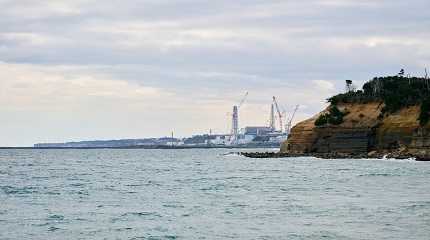
KUALA LUMPUR, July 3 (Xinhua) -- Japan's plan to discharge radioactive wastewater from the crippled Fukushima Daiichi Nuclear Power Plant into the ocean poses unacceptable risks, according to an observer from the Malaysian Chinese Association (MCA).
The release of contaminated water will severely impact various parts of the Pacific, including countries of the Association of Southeast Asian Nations (ASEAN) which depend on fisheries, both for domestic consumption and export, MCA International Communication and Diplomacy Bureau Deputy Chairman Neow Choo Seong said.
The contamination of the fisheries sector would be especially harmful, not only in terms of harm done to human health as a result of exposure, especially via seafood contaminated with heavy metals, but also would harm the region economically as tourists would stay away over negative perceptions and real risks while exports of seafood would grind to a stop, he warned.
"There is no limit to the movement of ocean currents plus the marine life that constantly migrates, this radioactive wastewater may spread to the neighboring countries and wider sea waters across the region, including those global major seafood exporting countries like China, Vietnam, and Thailand. Hence, it will certainly contaminate the marine life, and food chain, and pose a long-term threat to our public health," Neow told Xinhua in a recent interview.
Neow suggested that Malaysia should use its voice and leverage within ASEAN as well as other multilateral platforms such as the United Nations to raise the issue and make it clear to Japan that many nations are against its unilateral move and the lack of transparency surrounding it.
"The lack of transparency over this unilateral decision has raised concerns among the international community and strong reactions from the neighboring countries, international organizations, civil societies, as well as the fishermen communities in the region," he said.
"As one of ASEAN founding members, Malaysia can play a leading role through this regional platform, as well as other multilateral platforms such as the United Nations to voice our concern and urge Japan not to go ahead, until it is proven to be safe environmentally and scientifically," he added.
Japan plans to dump some 1.3 million tons of wastewater from its Fukushima Daiichi Nuclear Power Plant which suffered catastrophic damage during an earthquake in 2011. It has built an underwater tunnel stretching from its coast into the Pacific for the purpose.
Neow also urged Japan to drop its hypocritical approach to the issue, urging Japan to "lead by example" and use the wastewater for its own domestic consumption if it is indeed safe as claimed.




